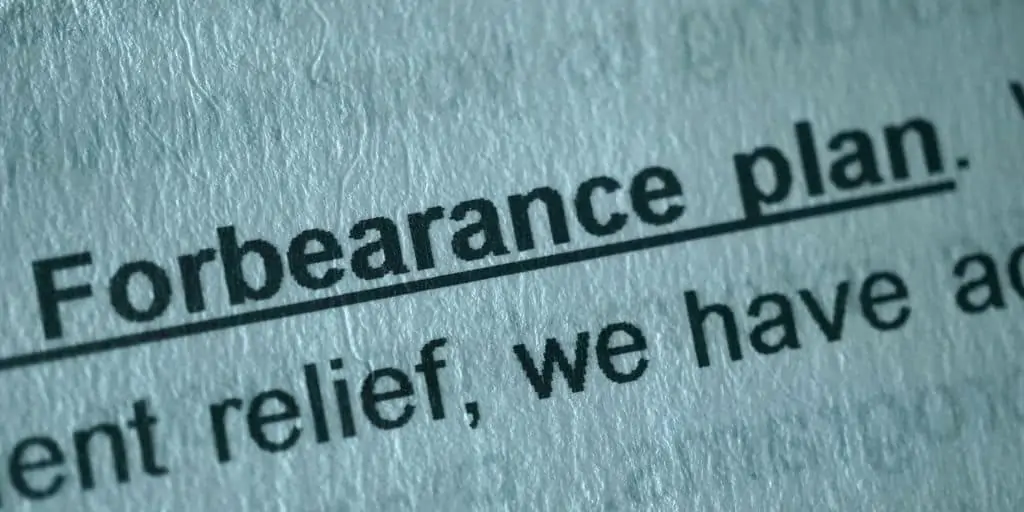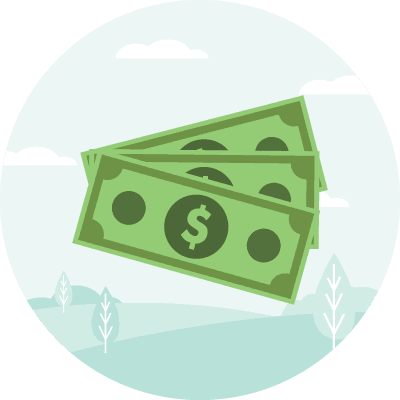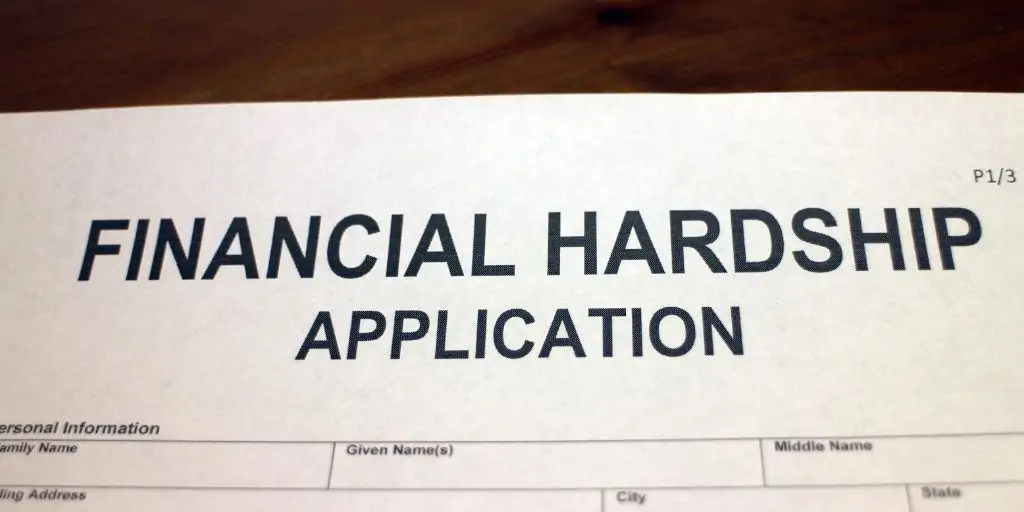What Does Forbearance Mean?
REtipster does not provide tax, investment, or financial advice. Always seek the help of a licensed financial professional before taking action.
How Does Mortgage Forbearance Work?

When a homeowner is struggling to make their mortgage loan payment, a homeowner may ask for relief from the lender in the form of a forbearance agreement. This grace period either lowers monthly payments or freezes payments altogether, under the condition that the borrower will pay back the paused payments later.
Naturally, this grace period doesn’t last indefinitely. When the forbearance period ends, the homeowner is required to resume making regular payments again. Payments after forbearance include interest and extra fees that have racked up during the grace period. Terms may differ depending on the lender.
Forbearance is useful for individuals who have lost income and need a few months to get back on their feet. In times of crisis, the federal government may also make it easier for people to get forbearance. An example is the Coronavirus Aid, Relief, and Economic Security (CARES) Act, which included mortgage forbearance for struggling homeowners[1]. Under the CARES Act, no interest or other fees may be charged on mortgage forbearance due to COVID-19[2].
Does Loan Forbearance Affect Credit Scores?
Forbearance does not directly affect credit scores[3]. During a grace period, missed payments are not reported; paused payments are still considered ongoing.
On the other hand, not making repayments after the grace period can result in a significant drop in credit score. The worst-case scenario is delinquency after forbearance, which drops credit scores by up to 100 points[4].
BY THE NUMBERS: About 3.2% of Fannie Mae or Freddie Mac borrowers are in forbearance.
Source: DSNews
How to Qualify for Mortgage Forbearance
Lenders evaluate each mortgage account to determine whether it qualifies for forbearance. Upon sending an application online or in-person, individuals may have to attach the following documents:
- Their mortgage account number.
- Gross monthly income and expenses.
- Their recent mortgage statement/s.
- Statement of financial hardship.
Lenders accept forbearance applications if the borrower’s financial situation is difficult. Doing so is often less risky than forcing homeowners into foreclosure. When a property is foreclosed, lenders must pay associated fees, including unpaid property taxes. Otherwise, the owner may lose their home entirely[5].
On the other hand, letting the property fall into foreclosure is a waste of years of mortgage payments. Therefore, most financial authorities encourage homeowners to seek forbearance for temporary financial relief if the need arises.
BY THE NUMBERS: The Joint Economic Committee of Congress found that foreclosures cost lenders approximately $50,000 per property.
Source: Sapling
How to Get a Forbearance From a Lender
A homeowner must contact their lender to negotiate an agreement. Different mortgage types qualify for forbearance as long as the lender agrees to extend that protection.
Borrowers with a home equity loan may also request forbearance from banks that offer them. That said, the mortgage relief may come in other forms. These include modified monthly payments or paying a lump sum[6].
1. Request for Forbearance
After the lender has received the request for forbearance, they will evaluate it to determine if the applicant is truly experiencing financial difficulties.
Lenders may want to clarify certain points, such as if the borrower has tried reducing their monthly expenses or if they are actively looking for a job (if unemployed). These questions can tell them if the applicant can recover from financial hardship after the grace period.
2. Wait for the Lender’s Approval
Lenders may take a few weeks to evaluate a forbearance request. Therefore, the applicant should not wait until they missed a payment to apply. Missed payments within the application period will still count against the homeowner’s credit score.
3. Sign the Agreement
Once the lender agrees to a forbearance request, they will send a letter detailing the terms and conditions of the agreement. Key points include:
- The forbearance period and duration.
- The fees incurred during forbearance. It may include interest, late fees, and administrative charges.
- Repayment after the forbearance period, such as a lump-sum payment, a mortgage extension, or other ways.
The borrower is encouraged to be as thorough as possible with the forbearance agreement. They are free to negotiate with the lender to change any of the drafted terms.
Repayment Options After Forbearance
When negotiating a forbearance agreement, choosing a repayment option that aligns with one’s financial capacity is important. Government-backed loans have standardized repayment schemes, such as the following.
Mortgage Extension
A mortgage extension will extend the total repayment period to include how long the payments have been paused. Once the homeowner is back on track financially, their mortgage will adjust to account for these frozen months.
Lump Sum Payment
Some lenders may require borrowers to repay their balance over the forbearance period in a lump sum. Note that Freddie Mac and Fannie Mae borrowers are protected from making lump-sum payments after forbearance. However, the same benefit does not always apply to private mortgages[7].
The two above are the most common repayment options for borrowers exiting forbearance. Lenders may also offer other repayment options if the borrower has not recovered during the grace period[8].
Is It Better to Get a Deferment Than a Forbearance?
Mortgage forbearance and deferment are similar terms that operate nearly the same way. They are both agreements with a lender or mortgage servicer in that they act to relieve the borrower from monthly payments. That said, their main difference lies in their repayment scheme[9].
In forbearance (except for proven financial hardship during the COVID-19 crisis), interest accrues even with paused payments. Deferments do not necessarily have interest unless the lender puts one in the agreement.
Forbearance is also designed around lump-sum payments more than a mortgage extension. On the other hand, a deferment is usually repaid by extending the mortgage by the equivalent length of deferred payment.
In general, the homeowner should try to understand the terms of the mortgage relief they are applying for. Thorough diligence allows them a broader view of their financial situation after a forbearance.
Takeaways
- Mortgage forbearance allows homeowners to lower or freeze their monthly payments for a specified period. They must then pay it back, including the accrued interest and other fees, after the period ends.
- While forbearance does not influence credit score, delinquency after the grace period will.
- Lenders offer various repayment options, which are negotiable before signing the final agreement.
- Deferment is a similar concept to forbearance, only differing in the mode of repayment after the specified period ends.
Sources
- Consumer Financial Protection Bureau. (n.d.) CARES Act Mortgage Forbearance: What You Need to Know. Retrieved from https://www.consumerfinance.gov/coronavirus/mortgage-and-housing-assistance/cares-act-mortgage-forbearance-what-you-need-know/
- Graham, K. (2021.) CARES Act Mortgage Forbearance: FAQs And Updates. Rocket Mortgage. Retrieved from https://www.rocketmortgage.com/learn/cares-act-mortgage
- Equifax. (n.d.) COVID + Credit: Forbearance and Your Credit Reports. Retrieved from https://www.equifax.com/personal/education/covid-19/forbearance-debt-payments-credit-scores/
- Campisi, N. (2021). Here’s What Will Happen When The Mortgage Forbearance Lifts. Forbes. Retrieved from https://www.forbes.com/advisor/mortgages/what-happens-after-mortgage-forbearance-lifts/
- Guerra, T. (n.d.). Basic Foreclosure Fees & Costs. SFGATE. Retrieved from https://homeguides.sfgate.com/basic-foreclosure-fees-costs-61248.html
- Wichter, Z. (2021). Everything you should know about mortgage forbearance. Bankrate. Retrieved from https://www.bankrate.com/mortgages/everything-you-should-know-about-mortgage-forbearance/
- Yale, A. (2020). Fannie And Freddie: Homeowners Will Not Owe Lump Sum Payments After Forbearance. Forbes. Retrieved from https://www.forbes.com/sites/alyyale/2020/04/27/fannie-and-freddie-homeowners-will-not-owe-lump-sum-payments-after-forbearance/?sh=7f57fed84ee4
- Campisi, N. (2021.) Mortgage forbearance: How to make up your missed payments. Bankrate. Retrieved from https://www.bankrate.com/mortgages/forbearance-repayment-options/
- Tarpley, L. (2020.) What’s the difference between mortgage forbearance and deferment? It comes down to interest and repayment methods. Business Insider. Retrieved from https://www.businessinsider.com/personal-finance/mortgage-forbearance-vs-deferment-2020-5










